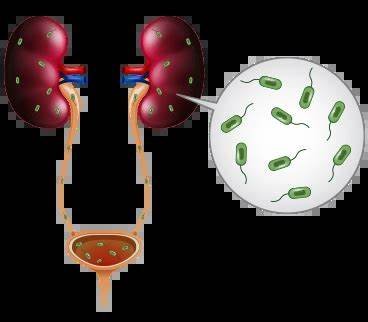Sexual activity is one of the most common triggers for urinary tract infections (UTIs), particularly in women. Understanding the connection between sexual behavior and UTIs is essential to prevent infections and maintain good urinary health. This article explores the causes, risk factors, and prevention strategies related to UTIs caused by sexual activity.

Why Sexual Activity Increases the Risk of UTIs
Sexual intercourse introduces bacteria, including Escherichia coli (E. coli), from the genital or anal areas into the urethra. This creates an opportunity for bacteria to travel to the bladder, causing an infection.
- Female anatomy: Women are more prone to UTIs due to their shorter urethra, which makes it easier for bacteria to reach the bladder.
- Friction during intercourse: Sexual activity can cause irritation around the urethra, making it easier for bacteria to enter.
- Use of contraceptives: Spermicides and diaphragms can disrupt the natural vaginal flora, increasing the risk of bacterial infections.
Risk Factors
Certain behaviors and conditions make UTIs more likely to occur after sexual activity:
- Frequent sexual activity: Regular intercourse increases exposure to bacteria near the urethra.
- New sexual partners: Changes in sexual activity or partners can expose individuals to unfamiliar bacteria.
- Lack of urination after intercourse: Urinating after sex helps flush out bacteria introduced during the activity.
- Poor hygiene: Inadequate cleansing of the genital area can contribute to bacterial growth.
- Menopause: Hormonal changes in postmenopausal women can reduce natural defenses against bacteria.
Symptoms of UTIs Caused by Sexual Activity
Symptoms of a UTI include:
- Pain or burning during urination
- Frequent and urgent need to urinate
- Cloudy or strong-smelling urine
- Lower abdominal discomfort or pressure
If these symptoms develop after sexual activity, a UTI is likely and requires medical attention.
Preventing UTIs Related to Sexual Activity
While UTIs are common, there are effective ways to reduce the risk:
- Practice good hygiene: Wash the genital area before and after sex to reduce bacteria.
- Urinate after intercourse: Emptying the bladder helps flush out bacteria introduced during sex.
- Stay hydrated: Drinking plenty of water helps maintain urinary tract health and encourages regular urination.
- Avoid spermicides: If you are prone to UTIs, consider alternative contraceptives that don’t disrupt vaginal flora.
- Wear breathable underwear: Opt for cotton underwear to reduce moisture, which can encourage bacterial growth.
- Probiotics: Supplements or foods containing probiotics can help maintain healthy vaginal and urinary tract flora.
When to See a Doctor
If you experience symptoms of a UTI after sexual activity, it’s important to consult a healthcare provider for diagnosis and treatment.
- Recurrent infections: If you frequently get UTIs after sex, your doctor may recommend preventive antibiotics.
- Persistent symptoms: Symptoms that don’t improve with home remedies or over-the-counter medications require professional attention.
- Urine culture: A urine culture can identify the bacteria causing the infection and help determine the best antibiotic.
Role of Cranberry Supplements
Cranberry products, including supplements and juices, are popular for UTI prevention. They contain compounds called proanthocyanidins that may prevent bacteria from adhering to the bladder walls. While they aren’t a guaranteed solution, they can be a helpful addition to other preventive measures.
Addressing UTIs in Men
Although UTIs are less common in men, sexual activity can also increase their risk. Men with poor genital hygiene, unprotected sex, or prostate issues are particularly susceptible. Preventive measures, including hydration, good hygiene, and urination after intercourse, are also effective for men.
Conclusion
Sexual activity is a well-established factor in UTI development, especially for women. However, by adopting good hygiene practices, staying hydrated, and taking preventive steps, the risk of infections can be minimized. For those with recurrent UTIs linked to sexual activity, seeking medical advice and considering preventive treatments can make a significant difference in maintaining urinary health.










